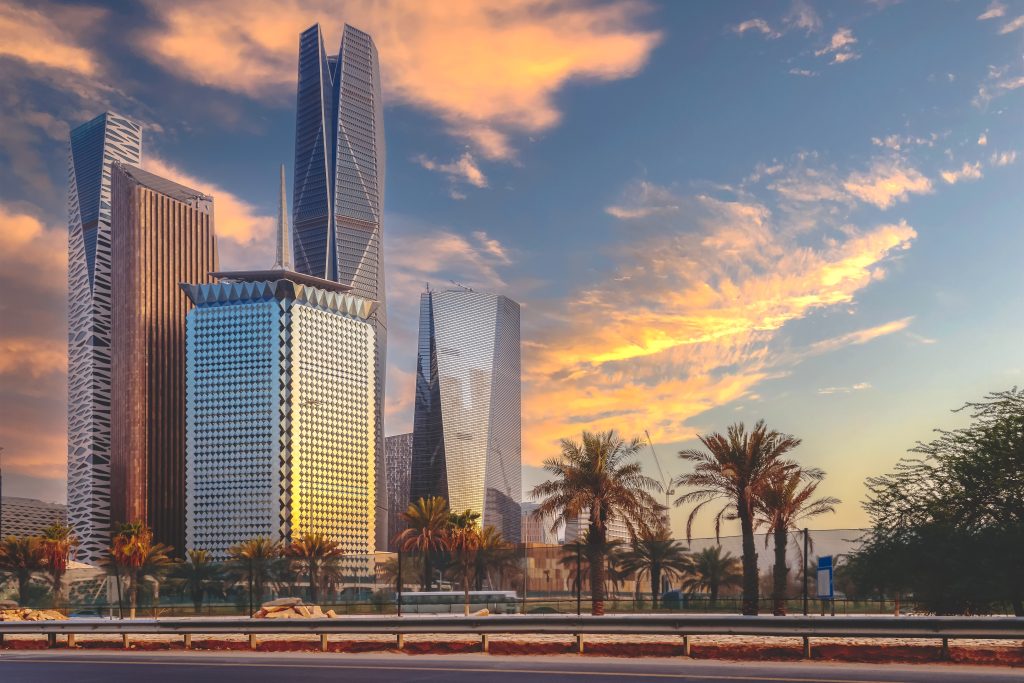Saudi Arabia has become a magnet for investors and partners looking to support startups and entrepreneurs, thanks to its robust economy, strategic location, and robust governmental encouragement.
The nation boasts one of the most significant expenditures on technology in the Middle East and North Africa, amounting to roughly 2.5 times that of its closest regional competitor, with continued growth each year.
Management consultant Houssem Jemili pointed out that Saudi Arabia is home to a mature and varied set of funding allies, including governmental entities like Monsha’at, large investment funds, and venture capitalists. These partners offer both direct and indirect financial support to emerging businesses and entrepreneurs.
The Kingdom’s tech landscape benefits from a considerable domestic market, the largest in the MENA region, with a strong demand for technology products and services.
Economist Talat Zaki Hafiz highlighted Saudi Arabia’s economic dominance in MENA, constituting over 30 percent of the region’s GDP and holding a notable place within the G20. The nation’s technology strategy focuses on drawing in international companies with expertise in cutting-edge and emerging technologies, which supports the development of significant tech projects.
Saudi Arabia’s position on the Global Innovation Index 2023, where it ranks 48th out of 132 economies, underscores its technological strides. The Kingdom has seen an improvement in its ranking, up from 51st and 66th in 2022 and 2021, respectively.
Jemili remarked on the Kingdom’s understanding of innovation as a critical economic growth driver, with anticipated advancements in various innovation indices.
In the category of high-income economies, Saudi Arabia stands at 41st, reinforcing its emerging status as a tech hub. Additionally, its fifth-place ranking among North African and West Asian economies signals its growing influence in the region.
Since the initiation of Vision 2030 in 2016, the Kingdom has been concentrating on tech industries and the digital economy. Given that over 60 percent of the country’s populace is under 35 and heavily reliant on the internet for shopping, e-commerce in the Kingdom is expected to hit $15 billion by 2025, with online sales projected to account for 66 percent.
The LEAP conference in Riyadh showcased Saudi Arabia’s increasing prominence in tech and innovation, with agreements over $12 billion being a testament to its success.
‘Saudi Arabia is laying the foundation for a high-tech future with strategic investments in R&D, supportive regulations, and a vibrant startup ecosystem,’ Jemili stated.
The presence of international tech giants in the Kingdom is proof of its evolving technology and innovation scene. These corporations play a pivotal role in providing infrastructure essential for the success of startups and entrepreneurs.
Microsoft and Oracle are among the global tech giants making multi-billion dollar investments in Saudi Arabia, reflecting the nation’s appeal as an investment destination.
Hafiz praised the seamless integration of technology into the Kingdom’s traditional economy, which is a cornerstone of Vision 2030’s aim to diversify and technologically transform the economy.
The government’s regulatory innovations, such as sandboxes and fintech hubs, offer a conducive environment for startups to test and develop innovative products within a compliant framework.
‘Access to incentives is a significant factor that has propelled Saudi Arabia’s innovation landscape,’ Jemili noted, emphasizing the importance of clear and predictable regulations that promote innovation and ease of business.
The concept of a ‘phygital center of gravity’ for the startup community is crucial, providing a hub that offers both virtual and physical resources and guidance to new entrepreneurs and foreign startups.
With over 1,600 startups and a network of venture capital firms, the Kingdom is on course to be a global leader in tech innovation.
Hafiz remarked on the Kingdom’s third-place global ranking and first-place regional ranking in the GOVTECH Maturity Index for 2022 by the World Bank Group, demonstrating the government’s support for advanced technologies and its progress toward Vision 2030.
Several startups stand out in Saudi Arabia’s bustling startup scene, many of which are part of the Saudi Unicorns Program, which supports high-growth tech companies in reaching unicorn status by offering an integrated suite of services. This initiative aligns with Vision 2030’s objectives to impact the local GDP positively.
Startups like Lean Tech, Mrsool, Quant, and Mozn exemplify the Kingdom’s thriving culture of innovation and entrepreneurship.
The Kingdom’s strategic investments, supportive policies, and flourishing startup ecosystem position it at the forefront of a digital future. By embracing collaboration, nurturing local talent, and leveraging emerging technologies, Saudi Arabia’s trajectory in technology and innovation looks promising.
According to a Magnitt report, Saudi Arabia has emerged as the leading market for venture capital funding in the MENA region, with $1.38 billion in investments in 2023. This marks the second consecutive year that the Kingdom has seen billion-dollar-plus figures in VC funding.
Mega-rounds in Saudi-based platforms like Tabby and Tamara have helped these companies achieve unicorn status. With ongoing improvements in livability, business ease, and the maturation of funding institutions, the Kingdom is on a path of sustained success.
Hafiz concluded with confidence in the Kingdom’s economic prospects for establishing a tech ecosystem, citing the young, tech-savvy population and high internet usage as contributing factors to an excellent ecosystem for technology and innovation.
